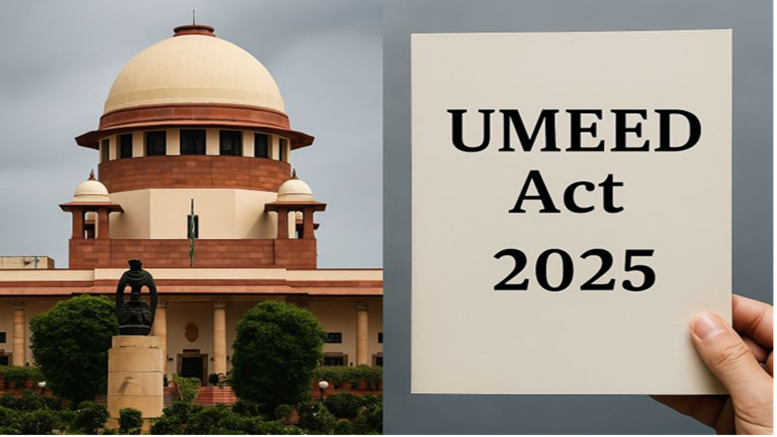- Courses
- GS Full Course 1 Year
- GS Full Course 2 Year
- GS Full Course 3 Year
- GS Full Course Till Selection
- Online Program
- GS Recorded Course
- NCERT (Recorded 500+ Hours)
- Polity Recorded Course
- Geography Recorded Course
- Economy Recorded Course
- AMAC Recorded Course
- Modern India, Post Independence & World History
- Environment Recoded Course
- Governance Recoded Course
- Science & Tech. Recoded Course
- International Relations and Internal Security Recorded Course
- Disaster Management Module Course
- Ethics Recoded Course
- Essay Recoded Course
- Current Affairs Recoded Course
- CSAT
- 5 LAYERED ARJUNA Mentorship
- Public Administration Optional
- ABOUT US
- OUR TOPPERS
- TEST SERIES
- FREE STUDY MATERIAL
- VIDEOS
- CONTACT US
Assam requested centre to withdraw AFSPA, 1958
Assam requested centre to withdraw AFSPA, 1958
09-09-2023
Latest Context:
Recently, the Assam government requested the central government to withdrew the Armed Forces Special Powers Act (AFSPA), 1958.
About the Armed Forces Special Powers Act (AFSPA), 1958
- Basically, the AFSPA is a controversial law that was enacted in 1958 to grant special powers to the armed forces in "disturbed areas".
- It was initially introduced in the northeastern states of Assam and Manipur and later extended to other regions, particularly Jammu and Kashmir.
- The primary purpose of AFSPA is to provide the armed forces with legal immunity and broad powers to maintain public order and combat insurgency in areas facing significant internal security challenges.
Key provisions and features of AFSPA include:
- Powers to the Armed Forces: AFSPA grants the armed forces the authority to arrest, search, and use force against individuals and property without a warrant in areas declared as "disturbed" by the government. The term "armed forces" typically refers to the army, paramilitary forces, and other special forces.
- Legal Immunity: One of the most controversial aspects of AFSPA is the provision of legal immunity to the armed forces for actions taken, while performing their duties. This means that soldiers cannot be prosecuted or sued in courts without prior approval from the central government.
- Use of Lethal Force: Under AFSPA, the armed forces have the authority to use lethal force, including shoot-to-kill, if they believe it is necessary to maintain public order or combat insurgency. This has led to allegations of excessive use of force and human rights violations.
- Proclamation of "Disturbed Areas": The government can declare an area as "disturbed" based on its assessment of the security situation. Once an area is declared as such, AFSPA can be enforced, giving the armed forces these special powers.
- Reporting Requirements: AFSPA mandates that when the armed forces take any action under its provisions, they must report the incident to the appropriate government authority, which is supposed to conduct an inquiry into the incident.
Arguments in favour of the act:
- Counterinsurgency Tool: AFSPA is viewed as a valuable tool in counterinsurgency operations. It empowers the armed forces to take swift and decisive action against armed groups and militants who threaten the security and stability of a region. Supporters argue that without such legal provisions, it would be challenging for the military to effectively combat insurgency.
- Deterrence: The legal powers granted under AFSPA, including the authority to use lethal force, are seen as a deterrent to potential insurgents and militants. The belief is that the knowledge that the armed forces have these powers can discourage individuals and groups from taking up arms or engaging in violence.
- Protecting Soldiers: AFSPA provides legal immunity to soldiers who are operating in high-risk and hostile environments. Supporters argue that this legal protection is crucial to ensure that soldiers can carry out their duties without fear of legal consequences for actions taken in good faith during the course of their duty.
- Maintaining Public Order: In areas declared as "disturbed" by the government, maintaining public order can be a significant challenge. Supporters of AFSPA argue that it is necessary to provide the armed forces with broad powers to restore and maintain order, particularly when civilian law enforcement agencies may be unable or unwilling to do so.
- Speedy Action: AFSPA allows the armed forces to take immediate action without the need for prior approval from civilian authorities or obtaining warrants. Supporters argue that this speed and flexibility are essential in responding swiftly to security threats and preventing potential violence from escalating.
- National Security: Proponents of AFSPA often frame it as a matter of national security. They argue that it is essential for safeguarding the integrity and sovereignty of the nation, especially in regions where separatist movements and insurgencies pose a threat to the state.
- Periodic Review: AFSPA includes provisions for periodic review by the government. Supporters argue that this allows for a level of oversight and accountability in the use of the powers granted under the act.
Arguments against the act are:
- Human Rights Abuses: One of the most significant criticisms of AFSPA is the alleged human rights abuses committed by the armed forces operating under its provisions. Critics argue that the broad powers granted to the military can lead to instances of extrajudicial killings, torture, arbitrary detention, and other violations of human rights.
- Legal Immunity: AFSPA provides legal immunity to security personnel for actions taken in the course of their duties. Critics argue that this immunity clause makes it difficult to hold security forces accountable for any wrongdoing or abuses.
- Misuse of Powers: There have been allegations that AFSPA has been misused in some instances. Critics claim that the law has been used to suppress political dissent and target innocent civilians, particularly in areas with ongoing conflict or unrest.
- Undermining Civil Authority: AFSPA can sometimes lead to a situation where the military exercises more authority than civilian authorities in the "disturbed" areas. Critics argue that this undermines the principles of democracy and civilian control over the armed forces.
- Civilian Casualties: The use of lethal force and the broad powers granted under AFSPA can sometimes result in civilian casualties, including the deaths of innocent bystanders. Critics argue that this not only violates the rights of civilians but can also fuel resentment and support for insurgent groups.
- Psychological Impact: Living under AFSPA's provisions can have a significant psychological impact on the civilian population. Checkpoints, curfews, and the presence of armed forces can create an atmosphere of fear and mistrust among residents.
- Ineffectiveness: Some critics question the effectiveness of AFSPA in addressing the root causes of insurgency. They argue that a heavy-handed military approach may not be the most effective way to address political, economic, and social grievances.
- International Scrutiny: India has faced international criticism for the use of AFSPA in certain regions, and this has affected its international image. Critics argue that the law's continued existence can harm India's reputation on the global stage.
Conclusion:
The debate over AFSPA continues to be a complex issue in India, with ongoing discussions about whether the law should be reformed, repealed, or retained in its current form. Critics argue that these alleged abuses undermine the credibility and legitimacy of the armed forces and the state. On the other hand, proponents of AFSPA argue that it is essential for maintaining law and order in areas affected by insurgency and terrorism.
Ques: Armed Forces Special Powers Act (AFSPA), 1958 was passed during the government of:
a) JL Nehru
b) LB Shastri
c) Indira Gandhi
d) AB Vajpayee
Ans. a

![img-PSYCHOLOGICAL WARFARE [PSYWAR]](https://i.filecdn.in/755esias/PSYCHOLOGICALWARFAREPSYWAR-1747206772505.jpg)

